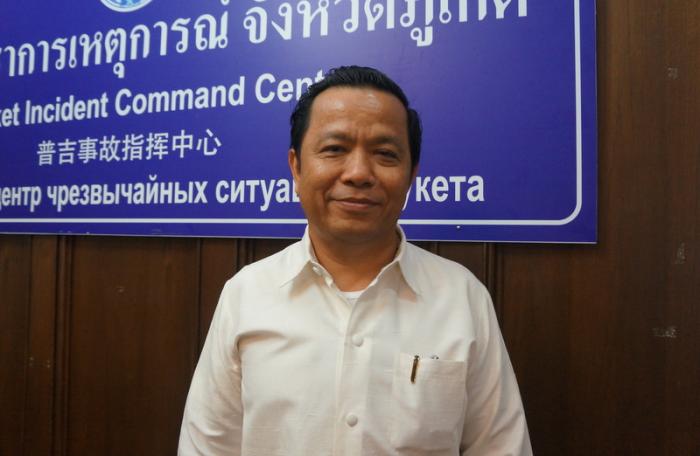Opinion: Easing the migrant registration process

PHUKET: Pitool Dumsakorn, 54, is the current chief of the Phuket Employment Office. Originally from Phatthalung, he has a master’s degree in Public Administration from Prince of Songkla University in Hat Yai. He has taken up this position to manage unemployment on the island.
Here he talks about how employment laws must not only be strictly applied, but also be practical and applicable in real life.
Last month, a crowd of more than a hundred local employers of migrant workers gathered at Phuket Provincial Hall to protest difficulties in registering workers under their employ. The employers demanded to skip official processes on location-based working restrictions.
Our office is following the policy of the Ministry of Labor and its laws. However, we still receive complaints sometimes. We cannot just close our eyes and follow the law without listening to the voice of the people about what troubles they are facing.
One example is that now the Employment Office is available seven days a week in order to make sure there will always be an official present in case employers need to work in a different place than they are registered. We normally work five days a week like other normal government offices, with some officials working in shifts. Now I make sure that the official present during off time is also authorized to sign off on emergency applications.
The ministry is trying to sort out problems as best they can. We are aware that most of the migrant workers first move here illegally. Some of them do not even have identification documents. In the meantime, employers are facing labor shortage problems because Thai people are not willing to work as laborers anymore. However, if employers hire illegal workers, they risk facing charges for that. That is the main dilemma they are facing.
Hiring illegal workers is a breach of both immigration and labor laws. The government has tried to resolve this by opening up a one-stop service for employers to legally hire labor and improve the quality of life for these people. We have a registration process so they can live and work legally for a period of one or two years (depending on the cabinet’s resolution) before deportation.
I would like to say that we are really trying our best. We cannot just work to please some people. We aim to service everyone equally and have our rules to follow. If that is not enough, we look for alternative solutions. We are doing our part and trying to fix problems, but employers should be equally strict in following the laws as well. We have started an extra queue for them, so they must be prepared to spare a little extra time for official processing as well.
If you want to make everything legal, you must register 100 per cent of your employees. Even if a single employee is found to be working illegally, authorities have every right to arrest the worker and press charges against the employer.
I stand by my word that we can be flexible with the application of the law, but we cannot go so far as to break it.
— Chutharat Plerin
Latest Thailand News
Follow The Thaiger on Google News:


























